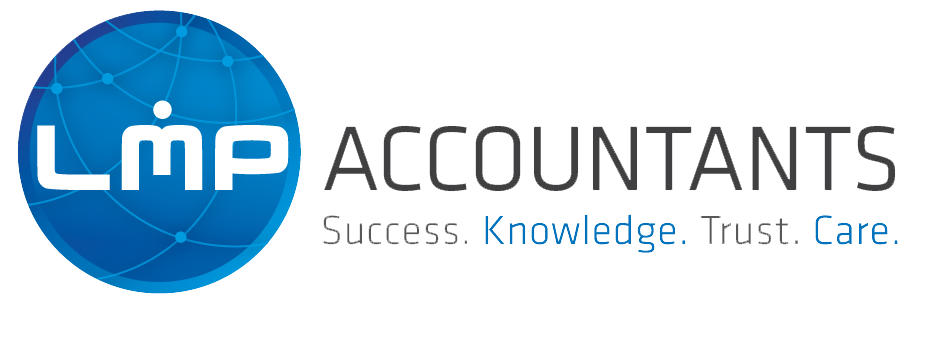Superannuation
As the Government is encouraging Australians more and more to take responsibility for reaching their financial retirement goals, taxpayers are repeatedly required to deal with the complex area of superannuation. Superannuation may be utilised as a tax minimisation strategy via a method such as salary sacrifice.
LMP Accountants has a strong knowledge of retirement planning strategies, from maximising contributions to Transition to Retirement and Account Based Pension strategies. We have a very strong connection with financial planning firms with specialist knowledge in these areas.
Superannuation law is a delicate area and personalised planning is required for each individual.
Self Managed Superannuation Funds
Self managed superannuation is a means for saving for retirement. It allows you to have personal control of your investment strategy whilst having some control over administration costs.
There are so many do’s and don’ts when it comes to Self Managed Superannuation Funds – make sure you speak to our Superannuation experts at LMP Accountants before creating a SMSF.
Self managed superannuation fund establishment
Trustee changes
Acceptance of employer to contribute to superfund
Admission of member to superfund
Superannuation fund administration
Taxation advice regarding employment termination payments, pensions and salary sacrifice arrangements
Superannuation Lump Sum summary calculations and preparation
Actuarial Certificates
For assistance with all your superannuation and SMSF queries…
“This information has been prepared without taking into account your objectives, financial situation or needs. Because of this, you should, before acting on this information, consider its appropriateness, having regard to your objectives, financial situation or needs”.
SERVICES
TAXATION
BUSINESS SERVICES
REMUNERATION SERVICES
SUPERANNUATION
CORPORATE SECRETARIAL
ESTATE PLANNING
Navigating the complexities of superannuation can be challenging, but with the right strategy, it can serve as an effective tool for wealth accumulation and tax minimisation.
The end of the financial year is fast approaching. We outline the areas at risk of increased ATO scrutiny and the opportunities to maximise your deductions.
From 1 July 2024, the amount you can contribute to super will increase. We show you how to take advantage of the change.
Australians love property and the lure of a 15% preferential tax rate on income during the accumulation phase, and potentially no tax during retirement, is a strong incentive for many SMSF trustees to dream of large returns from property development. We look at the pros, cons, and problems that often occur.
The concessional tax rate on earnings from superannuation in the accumulation phase will remain at 15% up to $3m. From $3m onwards, the rate will increase to 30%. The amendment applies to future earnings; it is not retrospective.
A consultation paper released by Treasury has sparked a national debate about the role, purpose and access to superannuation ahead of the 2023-24 Federal Budget.
The deadline for existing directors of Australian companies to obtain a Director Identification Number is 30 November 2022.
All directors of a company, registered Australian body, registered foreign company or Aboriginal and Torres Strait Islander corporation (ATSI) will need a director ID. This includes directors of a corporate trustee of a self-managed super fund (SMSF).
We often get questions from clients about what they can and cannot do in their SMSF. Often the questions relate to related party transactions – that is, interactions between the SMSF, its assets, and its members (or relatives of members). We’ve set out some of the common questions and answers.
The Victorian State Government’s 2020 Budget has delivered an unprecedented infrastructure investment to drive the State’s recovery, with its centerpiece an ambitious jobs plan aimed at creating 400,000 jobs by 2025, half of them by 2022.
On 6 October 2020 Federal Treasurer Josh Frydenberg delivered the Federal Budget for the 2020-2021 income year.
It is fair to say it will be remembered as Australia’s biggest spending budget with a forecast deficit of $214 billion for the 2021 fiscal year.
Due to Stage 4 restrictions, we will all be working from home as of tomorrow - Thursday 6 August 2020.
Please rest assured we can still be contacted on our normal office number and email addresses. If you are unsure of who to email please email info@lmp.com.au or contact your regular team member.
As the end of financial year nears and planning for the new one is in full swing, we thought it would be a great time to update you on what is changing from 1 July 2020
During these times where you may be working from home more than usual (either by choice or not), we want to make you aware of some expenses you should keep track of, that you may be able to claim at tax time.
The following is a broad summary of the key aspects of the Federal Government’s stimulus package in response to the Coronavirus, as recently announced and enacted.
The Government has announced a $17.6 billion investment package to support the economy as we brace for the impact of the coronavirus.
The yet to be legislated four part package focuses on business investment, sustaining employers and driving cash into the economy.
A series of high-profile examples of businesses underpaying their employees has brought the need to get payroll right into sharp focus.
Complex award and enterprise agreements can complicate payroll obligations, in terms of both regular salary and wages and the ongoing need to pay employee superannuation. On top of that, from 1 March 2020, changes commence for annualised wage arrangements that will increase the compliance burden on some businesses.
A new system alerting SMSF trustees of changes made to their SMSF will roll out this month.
Legislation that passed through Parliament last month prevents taxpayers from claiming a deduction for expenses incurred for holding vacant land. The amendments are not only retrospective but go beyond purely vacant land.
From 1 July 2020, new rules will come into effect to ensure that an employee’s salary sacrifice contributions cannot be used to reduce the amount of superannuation guarantee (SG) paid by the employer.
The Government has resurrected its plan to remove access to the main residence exemption for non-residents – a move that will impact on expats and foreign residents.
The investment strategies of Self Managed Superannuation Funds (SMSFs) are under scrutiny with the Australian Taxation Office (ATO) contacting 17,700 trustees about a lack of asset diversity.
Five years ago, the Australian Taxation Office (ATO) offered a penalty amnesty on undisclosed foreign income. Five years on, the ATO has again flagged that underreporting of foreign income is an issue but this time the gloves are off.
One of the stranger pieces of legislation to be introduced into Parliament last month is an attempt to ensure that overseas welfare recipients over the age of 80 are in fact, alive.
The end of financial year is upon us again (yep sneaks up doesn’t it!). Are you ready? Have you considered what you can do to maximise your opportunities at this time of the year? There are many ways to take advantage of tax planning initiatives to manage taxable income.
Single Touch Payroll (STP) is a new regulation introduced by the ATO. All large businesses (more than 20 employees) should now be using STP, or have applied for a later start date. For employers with less than 20 employees, STP reporting will begin on 1 July 2019.
For most people the end of a relationship is an extremely traumatic time, and there are very few couples who go through this process without seeking the professional advice of a family lawyer.
In general, taxpayers are able to deduct from their assessible income any expenses they incur generating or producing that income. An investment is negatively geared when the cost of owning the asset is more than the return. Negative gearing is not limited to property but can apply to other assets such as shares.
The Federal Budget announced a series of measures, some of which were legislated before the election was called.































